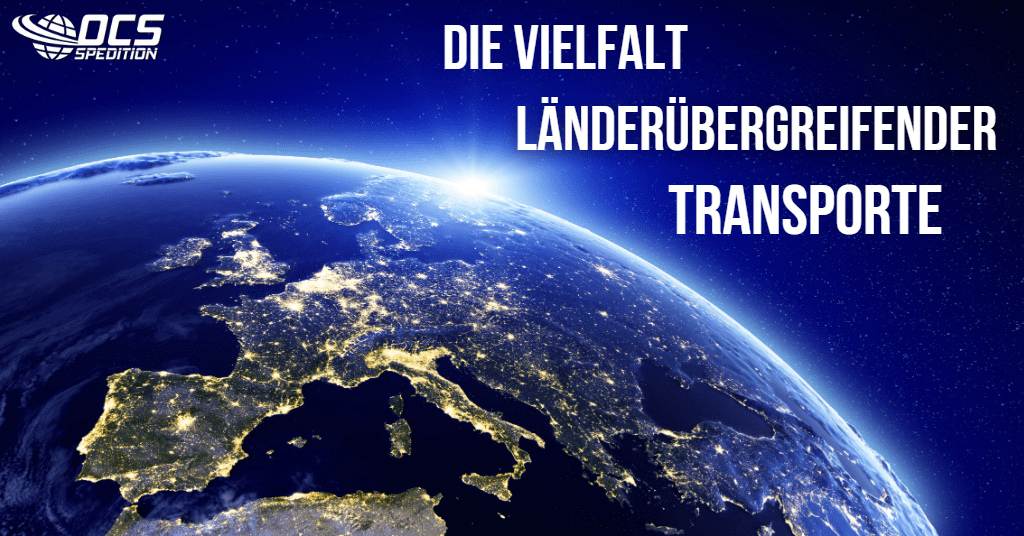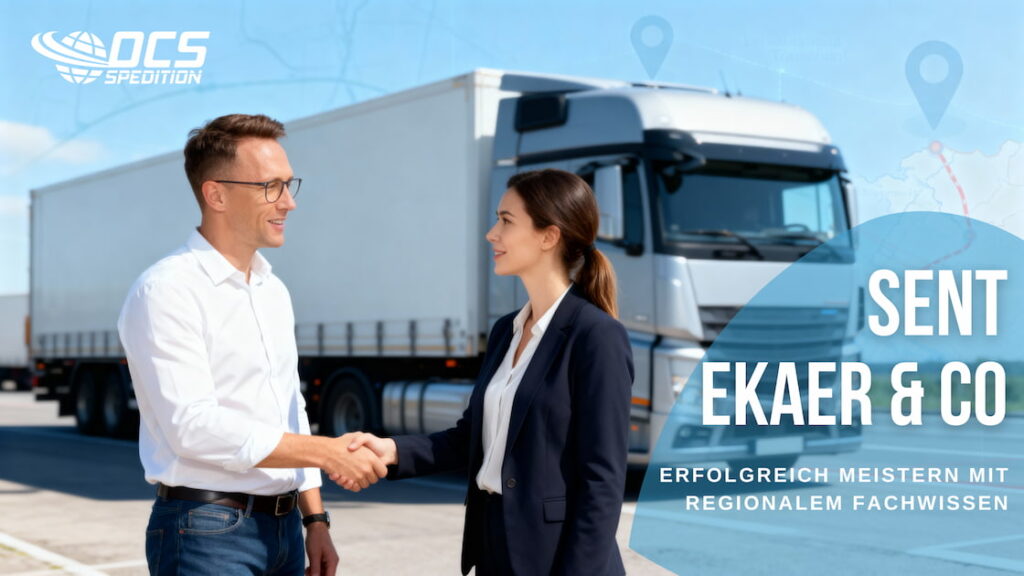Challenges during the pandemic
Two years of experience with a pandemic have shown us, firstly, that working from home can be more productive than being present in the office, and secondly, that the diversity of cross-border transport can involve more challenges than one might have anticipated.
Whether it's the traffic jams in the ports, which, incidentally, continue to this day, or supply bottlenecks caused by border controls or travel restrictions; the media have repeatedly reported that certain consumer goods are unavailable, and consumers have experienced this firsthand in the supermarket. Just think back to the shortages of toilet paper, pasta, or flour. Currently, it's sunflower oil that's either completely unavailable or only available at exorbitant prices.
The best prerequisites for overcoming these challenges are perfectly developed networks between clients and logistics providers, as well as passionate and motivated people who ensure smooth logistics. This minimizes waiting times and downtime. Working from home is very beneficial in this context, as it guarantees the necessary concentration for tasks such as creating quotes, and also provides the flexibility to reach customers in other time zones early in the morning or late at night.
In our team, working from home has proven extremely productive, as all colleagues enjoy working from home even beyond the legally mandated hours. Furthermore, a rotating presence in the office ensures that colleagues don't become isolated and can regularly complete tasks there that aren't possible from home.
EU transport and supply bottlenecks
The EU now wants more influence over supply bottlenecks to prevent them from occurring in the first place. This influence is to be exerted through an "emergency instrument" that will be deployed depending on the traffic light color. In "green" mode, national early warning systems will be established; in "yellow" mode, the EU Commission will have the power to intervene in supply chain management by lifting restrictions, such as import controls at the border. In a "red" phase, the EU Commission can even require companies to accept production orders that they would not have accepted under "normal" circumstances.
"Green"
Early warning systems are always useful, as they enable a rapid response to detected problems. However, it is unclear what these early warning systems should look like and what criteria should be used. The plan is for all EU member states to co-design this cross-border early warning system. Anyone who has followed the EU's efforts to launch a mobility package will be able to guess how quickly an agreement on a unified warning system can be reached.
Many customers trust the OCS forwarding team because they know that a functioning quality assurance system is already in place and that customers can regularly receive updates on the whereabouts of their goods.
"Yellow"
The advantage of limited border controls during the "yellow phase" is quite obvious: fewer checks mean shorter waiting times at the borders and speed up transport to the destination. However, a disadvantage of insufficient controls is the increase in smuggling, whether of illegal goods or, unfortunately, of people. Consider, for example, the Eurotunnel , where many refugees try to board trucks to reach Great Britain.
In some cases, this problem can be remedied, as reliable transport logistics companies are familiar with the weak points on the route and can give their drivers precise driving instructions. This ensures that the goods arrive safely at the recipient and strengthens the trust between the customer and the transport logistics company.
"Red"
The EU Commission's last resort in the "red phase" is to be production obligations. This means that production facilities would be compelled to manufacture essential consumer goods that are currently in short supply. For example, a brewery could be required to produce disinfectant instead of beer, because beer is considered a commodity that could be dispensed with. Approval procedures could also be expedited. A similar approach could be taken in logistics. A transport logistics company would then be required to transport only specific goods because these are currently classified as essential.
Many people certainly desire a leaner administration or less bureaucracy, and because shorter procedures mean faster results, this is a considerable advantage. However, since every EU member state has the right to participate in the decision-making process, this measure is unlikely to be implemented quickly. Furthermore, it is not yet known whether a two-thirds majority is required to make a decision, or whether a simple majority will suffice. Intervening in production itself in the event of supply bottlenecks might ensure the short-term supply of essential goods, but it contradicts the principles of free trade and globalization.
Many companies have already streamlined their processes, because in times of the internet and online tools it is very easy for customers individual offers .
Since we love a challenge, we are curious to see what tasks the EU Commission has in store for transport logistics in the future.
outlook
In summary, the EU's desire for greater influence is a controversial issue, and several details still need to be worked out before the proposed law can be passed. Experience suggests that this will not be a quick process, as it will require reaching an agreement among many different national governments.
No matter what challenges await us in the future, our customers can be assured that we will always strive to ensure smooth logistics.





